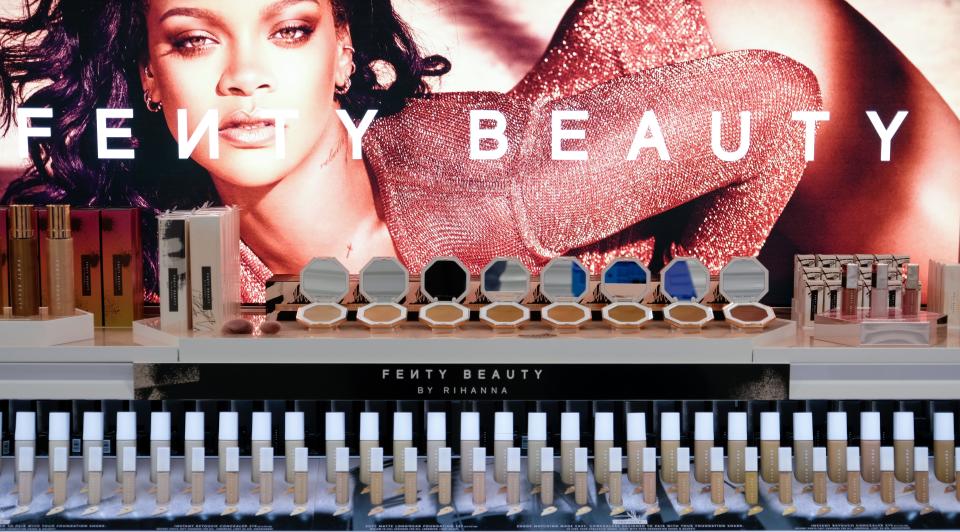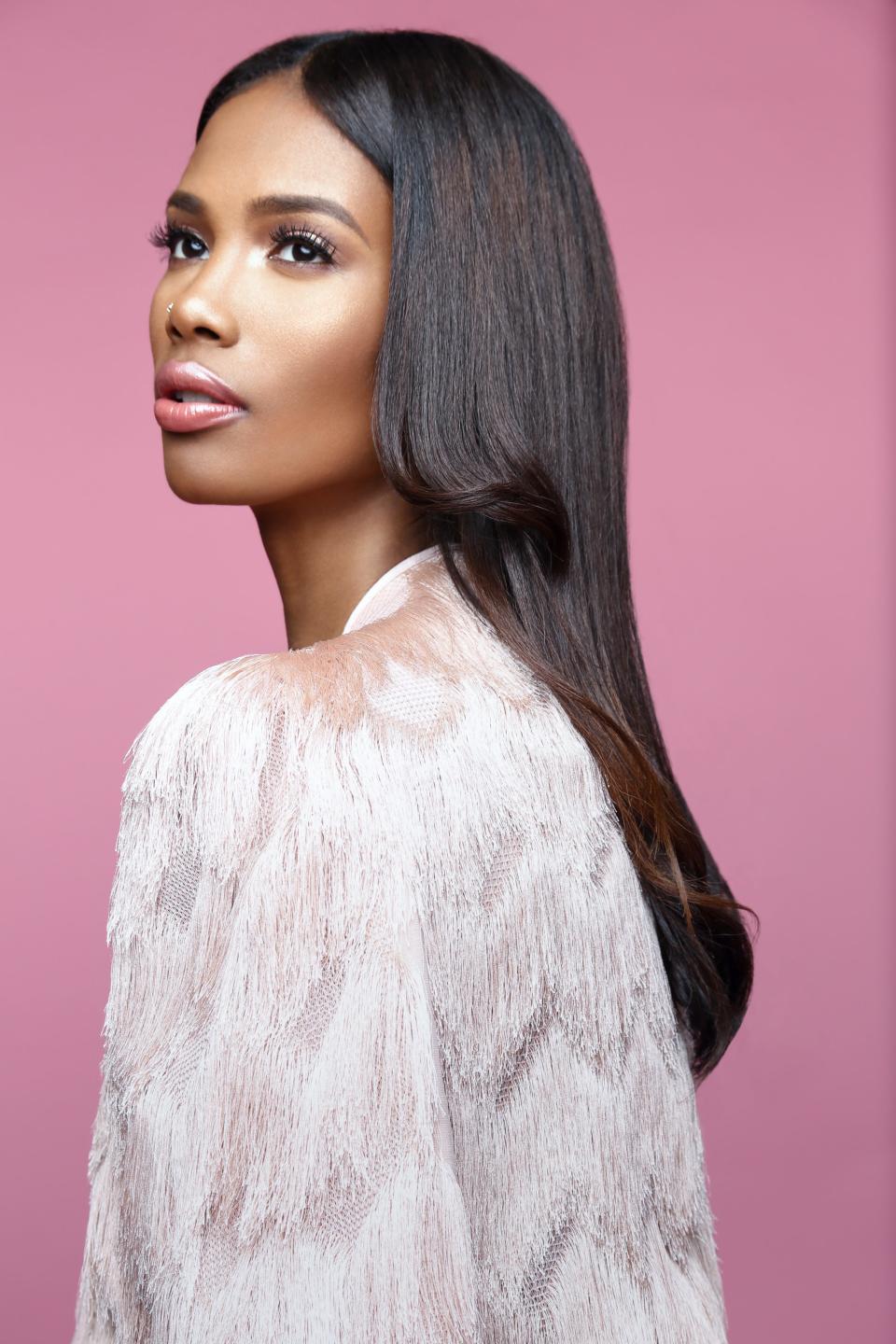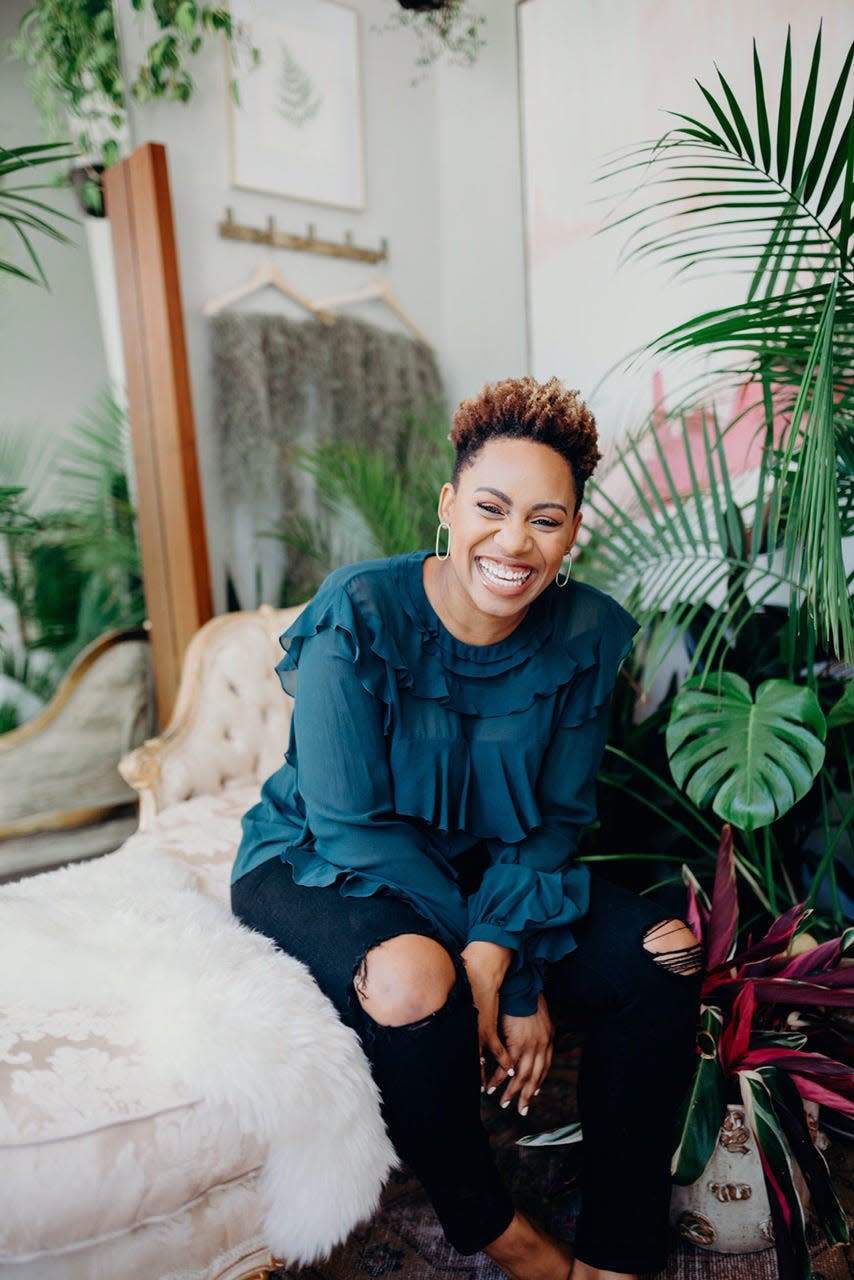Under Fenty Beauty's umbrella: More black-owned cosmetic companies for black consumers
Rihanna put her foot on the makeup industry's neck when she launched Fenty Beauty in September 2017 with an astonishing array of 40 foundation shades, setting a new standard for inclusivity that drew instant acclaim — and tremendous acclaim — from customers happy to see all skin tones represented.
And the numbers don't lie — the entertainer-entrepreneur's makeup line brought in over $570 million in revenue less than a year and a half after it launched, according to Forbes, which estimated the business's value at more than $3 billion.
Fenty Beauty — Rihanna's full name is Robin Fenty — follows the path that black-owned cosmetic lines started blazing long before Max Factor devised "light Egyptian" makeup for Lena Horne in mid-century Hollywood. (The makeup was later used to darken white actresses' skin so they could portray women of color.)
According to Racked, the first businessperson to successfully target black women's makeup needs was Anthony Overton, a black man who founded Overton Hygienic Manufacturing Co. in 1898 with "high brown" face powder. The company folded in 1983. Fashion Fair Cosmetics started in 1973 after makeup artists for the legendary Ebony Fashion Fair show couldn't find suitable makeup for their models. Somali-born supermodel Iman launched her eponymous makeup brand in 1994 due to her frustration with the dearth of foundation for darker African American skin.

Since then black-owned brands have continued to sprout up — including Ka'oir Cosmetics, founded in 2011 by Keyshia Ka'oir; Jasmine Rose's Laws of Nature Cosmetics brand, founded in 2015; and Pat McGrath Labs, founded by renowned makeup artist Pat McGrath in 2016.
Lips that raise the bar
In 2012, Melissa Butler started The Lip Bar, a cruelty-free, non-toxic and vegan lipstick brand while working as a financial analyst in New York. Butler was frustrated with the lack of lipsticks that worked with black women's skin tones . She took her business to the TV show "Shark Tank" where the judges harshly rejected her appeal for financing. But Butler kept focused on her vision.

Today The Lip Bar is featured in more than 450 Target stores nationwide and has a flagship store in Butler's native Detroit.
"From day one, The Lip Bar goal has been to challenge the beauty standard," Butler said. "That means a lot of different things. It means making sure that we have inclusive imagery. It means making sure that we have an inclusive assortment and means making sure our product are not toxic."
In 2018, The Lip Bar featured Ashley Blevins, a black Muslim model, in its #ThisIsBeauty campaign, where consumers on Instagram were encouraged to take photos wearing their favorite Lip Bar product. "For us, inclusivity is not a trend and a lot of people think of diversity and inclusion as something that is very hot right now," Butler said. "It's always been exactly who we are."
Black history: 'We're living our ancestors' wildest dreams': Mango-based business is sweet success
More: Franchises help African Americans 'level the financial the playing field'
More: The best inclusive foundations from Fenty Beauty to drug store brands, ranked
The brand is also known for its affordability. The average price of its products is $13 which Butler says is 30% to 40% less than what competitors charge.
Orbis Research estimates that the global cosmetics industry will top $800 billion by 2023. Judging by Fenty Beauty's success, companies that embrace diversity and inclusion are poised to grab a greater share of that wealth.
Good products, doing good
Black-owned companies are catering to African American consumers who want brands to align with their values. According to a 2019 Nielsen report, 42% of African Americans adults "expect brands they purchase to support social causes," which is 16% higher than the total population.
For Kristian Henderson, a public health professor at George Washington University in Washington, D.C., helping black women transition from using products with harmful ingredients to a healthy lifestyle has been a guiding force for her business, BLK + GRN, an all-natural marketplace that champions black-owned and non-toxic products. "We know that toxic ingredients in products are connected to adverse health effects," she said.

Henderson and her team of estheticians test every product, from skincare and haircare to natural deodorant and vitamins, that is sold on the site.
"On day one I started with a few brands. Now I have over 90 plus artisans and brands that I work with," Henderson said. This year, the company plans more Black Oasis pop-up shops that pair customers with experts.
Something for the brothers
According to Essence magazine, the black hair care industry brought in around $2.5 billion in 2018. That kind of potential helps explain why Shea Moisture, which has been catering to black women since 1991, decided to expand their reach to an even more underrepresented group in the beauty industry: black men.
Richard Nwaoko, one of the glorious bearded men in Shea Moisture's 2019 Define Your Beard campaign, said he used to use his sisters' hair care products because there wasn't anything that catered to his needs.
"It spread awareness into maintaining your beard. It made guys be like 'Hey we have a product for us.' The sisters are the face of Shea Moisture, but the campaign brought light to the brothers," says Nwaoko, an actor and filmmaker. "Before, as black men, we were quiet. It’s something we battled with too, because we don’t have a product that we can call our own."
More: Here's how Rihanna's Fenty Beauty looks on 4 different women
Another bearded Shea Moisture man, Chris Flanagan, echoes the same sentiment. He noted that a few years ago, black men would usually style their hair in low cuts because the lack of suitable products made it harder to maintain long hair. He said that prior to learning about Shea Moisture, he just used grease or a random homemade concoction to groom his beard.

"It speaks to the versatility of the different types of hair that we have," Flanagan said about Define Your Beard. "It’s such a great feeling because now beards are getting so much recognition. I've noticed a shift in how men with beards are perceived because there was a time where going to work with a beard was frowned upon."
Shea Moisture's focus on black men and their beards also created a shift in the community. Nwaoko recognized how black women built a support system around hair care and cosmetic products and now the same is happening with men.
"When it comes to the hair and products, women make sure all girls are good by making tutorial videos and reviews," Nwaoko said. Now, "guys are doing reviews and that was inspired from our sisters."
This article originally appeared on USA TODAY: Black-owned beauty companies seize the moment for inclusion

